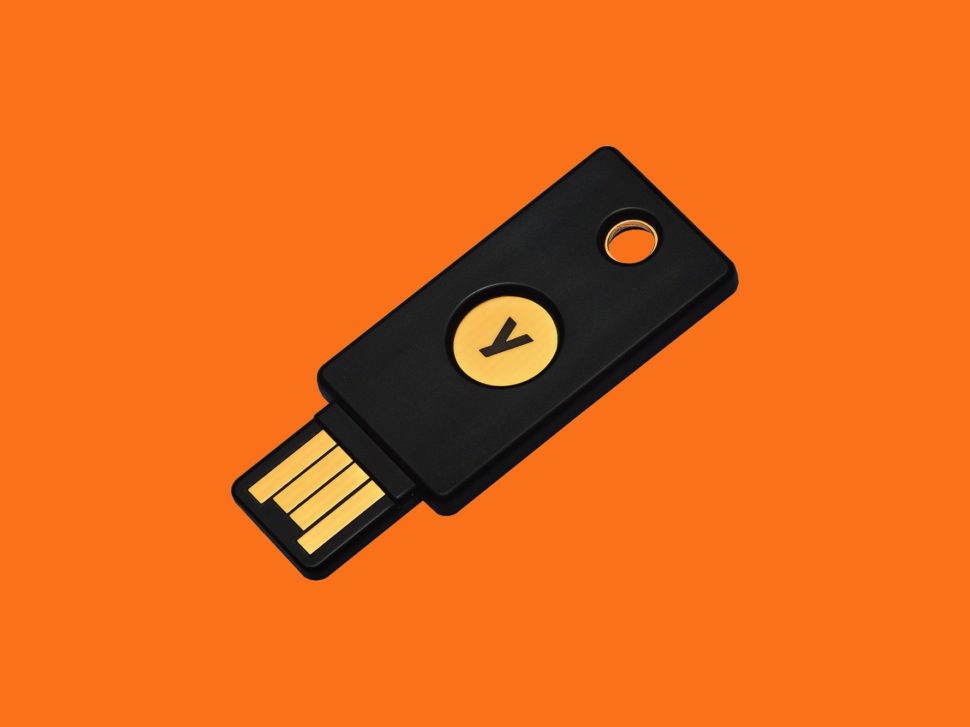In 2018, we wrote an article lauding the upsides of physical security keys over traditional passwords.
Now, WebAuthn wants to push the capabilities of physical security keys even further.
As you see in the picture below, the physical key attaches easily to a keyring. It can then be inserted into a computer and the user utilizes the gold “y” button as a biometric unlocker. That key specifically is a YubiKey which will set you back about $45 USD.
But how does the technology work and why is it more secure than traditional passwords?
Support From the FIDO Alliance and More
The World Wide Web Consortium (W3C) announced in a press release that WebAuthn is now an official standard for identity authentication. With this approval, WebAuthn can expand their operations and integrations for more use cases.
What does this mean for your average everyday user like you and me?
We can use biometric sensors and USB security keys to log onto web services and applications more securely than we could by using alternatives like passwords. Moreover, it means that we won’t have to remember as many passwords as before.
Browsers such as Microsoft Edge, Google Chrome, Mozilla Firefox, and Safari all support it, too. Now, other websites just need to adopt the API, allowing users the option to login using WebAuthn-supported hardware.
Wider Acceptance Means Less Expensive Security
Physical security keys can significantly alter the way you manage cybersecurity. Since the devices are so lightweight and easy to use, more people will likely adopt them. The support of the W3C and companies like Mozilla indicate that WebAuthn is the future, as well.
Another perk of this system involves identity theft and data breaches.
The biometric factor could result in fewer reused passwords. If people reuse passwords less frequently, this could reduce the success rates of hacking. Of course, these are just suppositions, but they seem like predictable likelihoods with the new tech.
With wider adoption comes wider availability, so the cost of these devices should go down, as well.


















Comments (0)
Most Recent